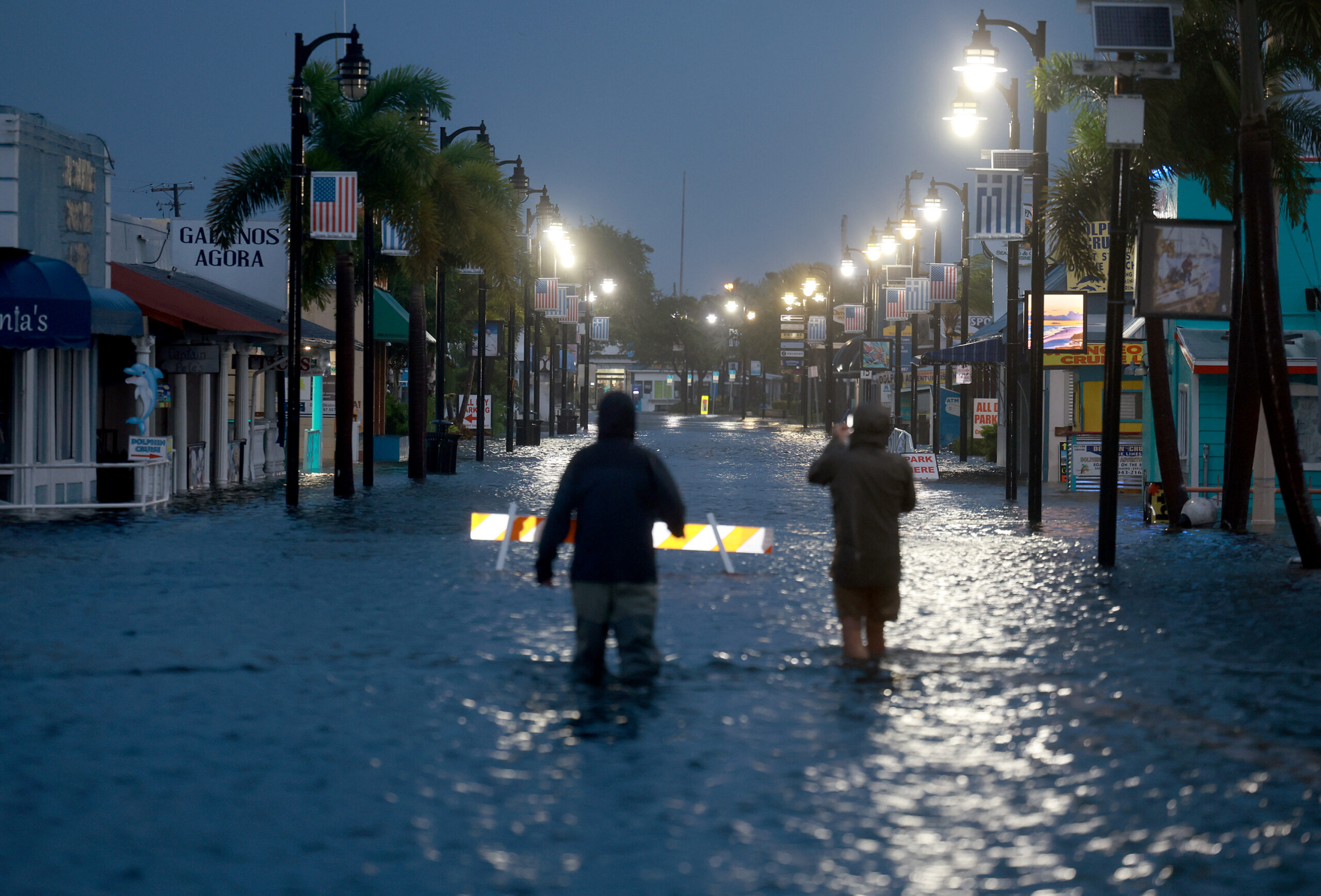DeSantis won’t meet with Biden during president’s trip to survey Idalia damage

DeSantis won’t meet with Biden during president’s trip to survey Idalia damage
It’s a break from the recent past, since Biden and DeSantis met when the president toured Florida after Hurricane Ian hit the state last year, and following the Surfside condo collapse.
Republican Florida Gov. Ron DeSantis ‘ office said Friday that he has “no plans” to meet with President Joe Biden when the Democrat flies to Florida this weekend to survey damage from Hurricane Idalia, suggesting that doing so could hinder disaster response.
“In these rural communities, and so soon after impact, the security preparations alone that would go into setting up such a meeting would shut down ongoing recovery efforts,” DeSantis spokesman Jeremy Redfern said in a statement.
Idalia made landfall Wednesday morning along Florida’s Big Bend region as a Category 3 storm, causing widespread flooding and damage before moving north to drench Georgia and North Carolina. Biden is set to fly to Florida on Saturday to tour the damage personally.
DeSantis preemptively heading off a meeting contradicts Biden himself, who, when asked after an event at the White House earlier Friday whether he would meet with DeSantis during his trip to Florida, replied, “Yes.”
It’s also a break from the recent past, since Biden and DeSantis met when the president toured Florida after Hurricane Ian hit the state last year, and following the Surfside condo collapse in summer 2021. But DeSantis is now running for president, and he only left the Republican primary trail last week with Idalia barreling toward his state.
White House spokeswoman Emilie Simons responded, “President Biden and the first lady look forward to meeting members of the community impacted by Hurricane Idalia and surveying impacts of the storm.”
“Their visit to Florida has been planned in close coordination” with the Federal Emergency Management Agency “as well as state and local leaders to ensure there is no impact on response operations,” Simons said in her own statement.
The politics of putting aside rivalries following natural disasters can indeed be tricky.
Another 2024 presidential candidate, former Republican New Jersey Gov. Chris Christie, was widely criticized in GOP circles for embracing then-President Barack Obama during a tour of damage 2012’s Hurricane Sandy did to his state. Christie was even asked about the incident last month, during the first Republican presidential debate in Milwaukee.
Both Biden and DeSantis at first said helping storm victims would outweigh politics, but DeSantis began suggesting that logistical problems could complicate a presidential visit as the week wore on.
“There’s a time and a place to have political season,” the governor said before Idalia made landfall. “But then there’s a time and a place to say that this is something that’s life threatening, this is something that could potentially cost somebody their life, it could cost them their livelihood.”
By Friday, the governor was telling reporters of Biden, “one thing I did mention to him on the phone” was “it would be very disruptive to have the whole security apparatus that goes” with the president “because there are only so many ways to get into” many of the hardest hit areas.
“What we want to do is make sure that the power restoration continues and the relief efforts continue and we don’t have any interruption in that,” DeSantis said. The statement about not planning to meet came later, and Redfern pointed to the governor’s previous comments when asked how Idalia’s aftermath might differ from that of Ian or the Surfside collapse when DeSantis and Biden met.
DeSantis has built his White House bid around dismantling what he calls Democrats’ “woke” policies. DeSantis also frequently draws applause at GOP rallies by declaring that it’s time to send “Joe Biden back to his basement,” a reference to the Democrat’s Delaware home, where he spent much of his time during the early lockdowns of the coronavirus pandemic.
Still, Biden suggested earlier in the week that he and DeSantis were cooperating easily. While delivering pizzas to workers at FEMA’s Washington headquarters, the president said he’d spoken to DeSantis so frequently about Idalia that “there should be a direct dial” between the pair.
Homeland Security adviser Liz Sherwood-Randall pointed to the experiences after Ian and Surfside when telling reporters at the White House this week that Biden and DeSantis “are very collegial when we have the work to do together of helping Americans in need, citizens of Florida in need.”
And yet, the post-Idalia politics could be complicated for both sides.
The president announced his bid for reelection in April but has mostly refrained from campaigning, preferring instead to lead by governing. The White House is now seeking an additional $4 billion to address natural disasters as part of its supplemental funding request to Congress — bringing the total to $16 billion and illustrating that wildfires, flooding and hurricanes that have intensified during a period of climate change are imposing ever higher costs on U.S. taxpayers.
DeSantis, meanwhile, is facing questions about whether his campaign can survive for the long haul, even as he helps Florida navigate not just Idalia’s damage, but also a shooting the previous week in which a white gunman killed three Black people at a convenience store in Jacksonville in a racist hate crime.
Four months before the first ballots are to be cast in Iowa’s caucuses, DeSantis still lags far behind former President Donald Trump, the Republican primary’s dominant early front-runner. And he has cycled through repeated campaign leadership shakeups and reboots of his image in an attempt to refocus his message.
The super PAC supporting DeSantis’ candidacy has halted its door-knocking operations in Nevada, which votes third on the Republican presidential primary calendar, and several states holding Super Tuesday primaries in March — a further sign of trouble.
